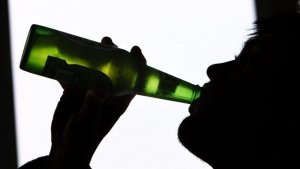
All iLive content is medically reviewed or fact checked to ensure as much factual accuracy as possible.
We have strict sourcing guidelines and only link to reputable media sites, academic research institutions and, whenever possible, medically peer reviewed studies. Note that the numbers in parentheses ([1], [2], etc.) are clickable links to these studies.
If you feel that any of our content is inaccurate, out-of-date, or otherwise questionable, please select it and press Ctrl + Enter.
Scientists have discovered a gene for binge drinking
Last reviewed: 01.07.2025
 ">
">British scientists from King's College have discovered a gene responsible for teenage alcoholism.
A mutated RASGRF2 gene makes the brain more sensitive to addiction and triggers a tendency toward alcohol dependence.

According to scientists, alcoholic drinks, just like drugs, provoke the secretion of the hormone of pleasure and enjoyment – dopamine. During alcohol consumption, the RASGRF2 gene takes an active part in the process of producing dopamine, which is fraught with serious problems for those who drink.
"If a person has this gene, it affects how they perceive alcohol. In this case, the feelings of pleasure and reward will be expressed much more strongly," comments the lead author of the study, Professor Günter Schumann.
That is, what makes us happier and makes us feel joy, our body perceives as something useful, in particular, such a pseudo-useful product in this case is alcohol.
Scientists are concerned that the rate of teenage drinking has been increasing in recent years. In 1994, teenagers consumed an average of six units of alcohol per week, and in 2007, the weekly amount increased to 13 units. Experts consider a glass of wine to be a unit of alcohol.
Teenage alcoholism leads to health problems and the development of antisocial behavior.
Experts conducted a study on mice. Those rodents that lacked the RASGRF2 gene did not react to alcohol as strongly as those that had its variations. This is explained by the fact that the absence of RASGRF2 weakened the work of neurons responsible for the production of dopamine, and are located in the ventral tegmental area of the brain.
The scientists also conducted an experiment involving 663 14-year-old boys who had no health problems and who either had no knowledge of alcoholic beverages at all or had, but in very small doses. At 16, the same teenage boys were examined again. It turned out that many began to drink alcohol more often and in larger quantities. Those who had the RASGRF-2 gene, just like mice, had a stronger craving for alcohol.

 [
[